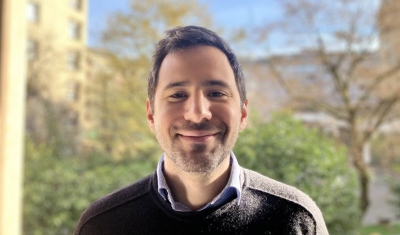Executive Master in International Law in Armed Conflict: What Alumni Say
19 April 2021
Diego Ruiz Gayol is a Mexican diplomat working at the Permanent Mission of Mexico to the United Nations (UN) in Geneva where he is in charge of human rights issues. He is following the work of the UN Human Rights Council and of the Office of the UN High Commissioner for Human Rights. His main areas of expertise are civil and political rights and gender equality.
Previously, he was Deputy Head of Mission at the Embassy of Mexico in Haiti and consular and protection officer at the Embassy of Mexico in Peru.
Diego completed our Executive Master in International Law in Armed Conflict in 2020
Why did you choose to follow this programme?
I was looking for a programme that would help me to deepen my understanding of international law, in particular international human rights law and international humanitarian law (IHL), while pursuing at the same time my diplomatic career as a delegate of my country to the UN. The Geneva Academy, at the heart of international Geneva, and with a long tradition in the study of these subjects, was the ideal place to do it.
Did it respond to your expectations?
Yes, this master programme fulfilled my expectations and was a great investment of my time. I really appreciated the very high quality of the faculty and the rich mix of students in terms of cultures, backgrounds, fields of expertise and worldviews.
What did it bring to your career?
The programme gave me the legal theoretical knowledge that allowed me to perform better as a diplomat at different multilateral fora dealing with human rights and IHL. It opened the possibility of reaching positions in the future that require strong legal specialization.
Would you recommend it?
Yes, I would recommend it to professionals that are at the beginning or at the middle of their career, and who may need to strengthen their understanding of international law, in particular in the fields of human rights, IHL and international criminal law. Balancing professional and academic responsibilities can sometimes be challenging, but the rewards and satisfactions that come during the programme and at the end of it, make the journey worthwhile.









